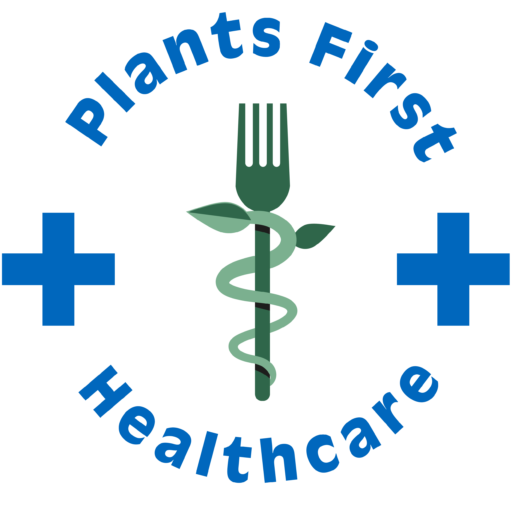This letter has been sent on October 16th 2024 to all NHS hospital trusts, Integrated Care Boards and the Department of Health in all four nations.
We are calling on NHS trusts, Integrated Care Boards (ICBs) and all other healthcare organisations to adopt a ‘Plant-Based by Default’ food menu1.There is now overwhelming evidence that shifting towards a plant-predominant food system can significantly improve national health outcomes, address health inequalities and is essential for meeting our climate and nature targets2. There is growing evidence that it could also decrease NHS costs3. ‘Plant-Based by Default’ menus offer and incentivise plant-based meals as the primary menu option without restricting choice – meat and other animal products remain on the menu.
Plant-based meals can have direct health benefits. By encouraging a higher consumption of fruit, vegetables, whole grains and legumes we can reduce the prevalence of heart disease4, high blood pressure5, type 2 diabetes6, obesity7 and certain cancers8.
Plant-based meals can keep the food system within planetary boundaries.9 A typical plant based meal uses 75% less land, and has a 66% lower impact on biodiversity than one containing meat9. The current global food system contributes a third of all greenhouse gas emissions10 and in the UK 70% of our total food-related emissions come from red meat and dairy production alone 11. Furthermore, industrial animal practices are associated with the rise of antibiotic resistant infections12, the development of zoonotic diseases with pandemic potential13, and increases in particulate air pollution and ground level ozone14.
Plant-based meals can also save money. A modelling study has shown that this ‘plant-based by default’ approach could save the NHS £74 million annually and, if patients were also supported to make these dietary shifts at home, there would be significant household cost savings too15. The Office of Health Economics recently estimated that if just England were to adopt a completely plant-based diet there would be ‘a total net benefit to the NHS of around £18.8 billion per year’ 16. No other intervention can deliver such significant health benefits alongside cost savings and environmental benefits.
Healthcare institutions have the opportunity to lead the food system transformation that is needed within wider society. There is already a successful precedent. In 2022, eleven New York City hospitals moved to a ‘plant-based by default’ menu, with support from doctors and dietitians, and have achieved remarkable results: Over than 50% of patients in those hospitals have chosen plant-based meals and more than 90% were satisfied with their meal17. Food-related emissions have reduced by 36%, and financial savings by up to 59 cents (46 pence) per meal18, 19, 20. ‘Greener By Default’, worked with NYC Hospitals to achieve this goal, and provide one-on-one consultation, menu analysis, and marketing collateral, completely free of charge17.
We ask that in 2024 NHS healthcare organisations commit to implementing a ‘Plant-based by Default’ menu in order to promote a healthier and more sustainable food environment for patients and staff. To begin implementation, you can work directly with Greener by Default and their newly appointed UK healthcare manager for free. Please complete the online interest form to learn more and get started.
Yours Sincerely
Plants First Healthcare Campaign
A coalition of over 20 supporting organisations and signed by more than 1000 health professionals.
References
- Greener By Default:Healthcare(accessed February 2024)
- Clark MAet al,. Global food system emissions could preclude achieving the 1.5° and 2°C climate change targets. Science. (2020) Nov 6;370(6517):705-708.
- Office for Health Economics. Could plant-based diets transform health care spending? (2024)
- Dybvik JS, Svendsen M, Aune D. Vegetarian and vegan diets and the risk of cardiovascular disease, ischemic heart disease and stroke: a systematic review and meta-analysis of prospective cohort studies.Eur J Nutr. (2023) Feb;62(1):51-69.
- Tomé-Carneiro J, Visioli F. Plant-Based Diets Reduce Blood Pressure: A Systematic Review of Recent Evidence.Curr Hypertens Rep. 2023 Jul;25(7):127-150.
- References Thompson AS, Candussi CJ, Tresserra-Rimbau A, Jennings A, Bondonno NP, Hill C, Sowah SA, Cassidy A, Kühn T. A healthful plant-based diet is associated with lower type 2 diabetes risk via improved metabolic state and organ function: A prospective cohort study.Diabetes Metab. 2024 Jan;50(1):101499.
- Jarvis SE, Nguyen M, Malik VS. Association between adherence to plant-based dietary patterns and obesity risk: a systematic review of prospective cohort studies.Appl Physiol Nutr Metab. (2022) Dec 1;47(12):1115-1133.
- Watling, C.Z., Schmidt, J.A., Dunneram, Y. et al. Risk of cancer in regular and low meat-eaters, fish-eaters, and vegetarians: a prospective analysis of UK Biobank participants.BMC Med 20, 73 (2022).
- Scarborough, P., Clark, M., Cobiac, L.et al. Vegans, vegetarians, fish-eaters and meat-eaters in the UK show discrepant environmental impacts. Nat Food 4, 565–574 (2023)
- Crippa, M., Solazzo, E., Guizzardi, D.et al. Food systems are responsible for a third of global anthropogenic GHG emissions. Nat Food 2, 198–209 (2021).
- Mulcahy E, Evans R, Brookes F, Fredrikkson G, Pattnaik A. The Lancet Countdown on Health and Climate Change Policy Brief for the UK. 2023. https://s41874.pcdn.co/wp-content/uploads/UK-Lancet-Countdown-policy-brief-2023-v1-1.pdf.
- Romanello, Met al. The 2023 report of the Lancet Countdown on health and climate change: the imperative for a health-centred response in a world facing irreversible harms. Lancet. 2023 Dec 16;402(10419):2346-2394.
- Cella Eet al. Joining Forces against Antibiotic Resistance: The One Health Solution. Pathogens. (2023) Aug 23;12(9):1074.
- Clifford Astbury Cet al. Policies to prevent zoonotic spillover: a systematic scoping review of evaluative evidence. Global Health. (2023) Nov 8;19(1):82.
- Springmann, M., Van Dingenen, R., Vandyck, T.et al. The global and regional air quality impacts of dietary change. Nat Commun 14, 6227 (2023).
- Conservative Animal Welfare Foundation. The £2 billion NHS windfall: Why meat reduction matters. (2024)
- Office for Health Economics. Could plant-based diets transform health care spending? (2024)
- Greener By Default.Healthcare (Accessed February 2024)
- Waddell, E.Eleven hospitals go meat-free in New York. Public Sector Catering (2023)
- Buckley, C. How New York’s Public Hospitals Cut Carbon Emissions: More Vegetables.New York Times (2023)
- Greener By Default. Food as Medicine (Accessed February 2024)
